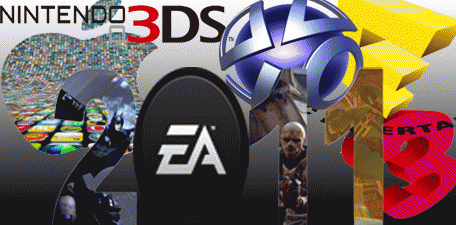With less than a fortnight to go before the games industry shuts down for Christmas and the New Year, the biggest questions of 2011 are yet to be resolved. We know that our business is in transition – it would take a truly remarkable act of head-burying in an astonishingly deep sandpit to avoid that conclusion – but as yet, nobody quite knows whether 2011 is going to be seen as a turning point in that process. It has the hallmarks of a watershed, the hype of a pivotal year – but the facts simply aren’t in place yet.
I say this primarily because two of the most important test cases for the future direction of the market and the speed of the transition are only now rolling out, after a year of nervous anticipation. Sony’s PlayStation Vita won’t raise its head outside Japan until next year; Electronic Arts’ Star Wars: The Old Republic won’t start to produce useful data for a few months yet. How each one fares is absolutely crucial to our understanding of the business.
The cases of these two products – so dissimilar on the surface – correspond to a remarkable degree. Each one is an expensive, high quality product that’s had major investment and carries a premium price tag as a consequence. Each one is competing in a market that’s still dominated by an aging rival (Nintendo DS, World of Warcraft) but whose future is commonly seen as being cheaper, more nimble products with new business models, rather than another monolithic, dominant product.
Both of them, significantly, have been called out in public, by senior commentators and industry figures, as being the last of their kind. Opinion is strongly polarised over how well PlayStation Vita will do in the market, but few people are willing to argue the case that Sony will ever release another dedicated handheld platform after it. Equally, there’s a cautious optimism around Star Wars: The Old Republic that’s tempered by the sense that it’s probably the last of the high-budget, expensive, pay-to-play MMORPGs.
The obvious question, then, is whether these products are swansongs or death knells for their respective categories. Will dedicated handhelds and pay-to-play MMOs go out with a whimper, or with a bang?
There’s another question, though, which the stats we eventually get from these two launches will help to answer – are we actually right about the direction of the industry? In discussing the rise of free-to-play, or the increasing importance of social network gaming, or the ubiquity of multi-function mobile devices, it’s easy to get comfortable with the prevailing wisdom. We shouldn’t forget that the conventional wisdom regarding where the market is moving is nothing more than a theory, and while it may seem perfectly logical, it’s subject to human error and bias.
That’s why we need to see the performance of landmark products clearly – in order to gather data to shape our views of where the industry is going, and how fast it’s going there. The success or failure of Vita and The Old Republic will tell us incredibly important things that could either confirm or overturn our assumptions about industry trends. Most likely, this data will do neither thing, but will refine our perspectives. Some things we presently believe are probably right. Others are probably wrong. We just don’t know which, yet.
In the case of handheld consoles, there’s also an unanswered question over the Nintendo 3DS. I’ve always maintained that the 3DS does not have the potential to match the eventual market success achieved by the DS, and I still think that’s the case. Earlier this year, however, it looked like the console might be an outright flop – with plenty of commentators ready to pile on and declare the console still-born. Now it’s selling bucketloads in Japan thanks to Monster Hunter, and doing remarkably well overseas too, suggesting that the strong Christmas Nintendo needed for the console has become a reality.
Does that mean we’re all wrong about iOS reshaping the face of this market? No – but it’s new data, and it’s important to assimilate and understand it rather than dismissing it as a blip or claiming that Nintendo’s “fanboys” are somehow distorting the market in an unrealistic way. In a market where conventional wisdom says that smartphones are the only game in town, millions of consumers have bought 3DS consoles. There’s a transition happening, but perhaps it’s not the transition we thought – perhaps it’s slower, or less complete, or simply more complex than the simple narrative of “everyone drops dedicated consoles and buys an iPhone”.
I suspect that similar complexity will emerge as we start to get an understanding of what happens around the forthcoming launches of Vita and The Old Republic. Vita is a powerful multifunction device that isn’t a phone – unlike the 3DS, it can be seen in some ways as a stab at the iPod Touch market, for example, and perhaps even nibbling around the fringes of what the iPad does for some of its consumers. Will it work? It won’t sink the iPad, of course, but it’ll be interesting to see what it can do in the market, and will give us a deeper picture of a market that’s not only in transition, but also in the throes of rapid growth.
The Old Republic, meanwhile, is a game that conventional wisdom consigns to the bin of history – an expensive MMORPG with a front-loaded cost structure and premium monthly subscription, adrift in a world of free-to-play business models. It’s easy to declare it the last of the would-be WoW-killers. Yet the sheer power of the brand recognition and of EA’s marketing machine, not to mention the credibility with the core market afforded by Bioware’s involvement, make it something special – and the excitement over freemium doesn’t change the fact that over 10 million people are still paying for WoW every month, so it’s obviously not a dead business model, even if it’s an old one.
Because the games business so often runs on the basis of making good guesses about what’s going to happen 18, 24 or 36 months down the line, it has become very full of people who may not actually be great educated guessers, but are extremely good at giving the impression of being utterly confident and informed in their predictions. This makes video games an industry where conventional wisdom tends to become accepted fact long before it has any right to be anything other than challenged theory. That makes data – proper, quantifiable data coming from the only place that matters, the marketplace itself – incredibly valuable and important.
That data, however, takes a while to arrive. Hence the irony; 2011 will be remembered as a pivotal year for the games industry. Until we see the figures start to pile up in 2012, though, we’ll have real no idea in which direction we’re pivoting.







